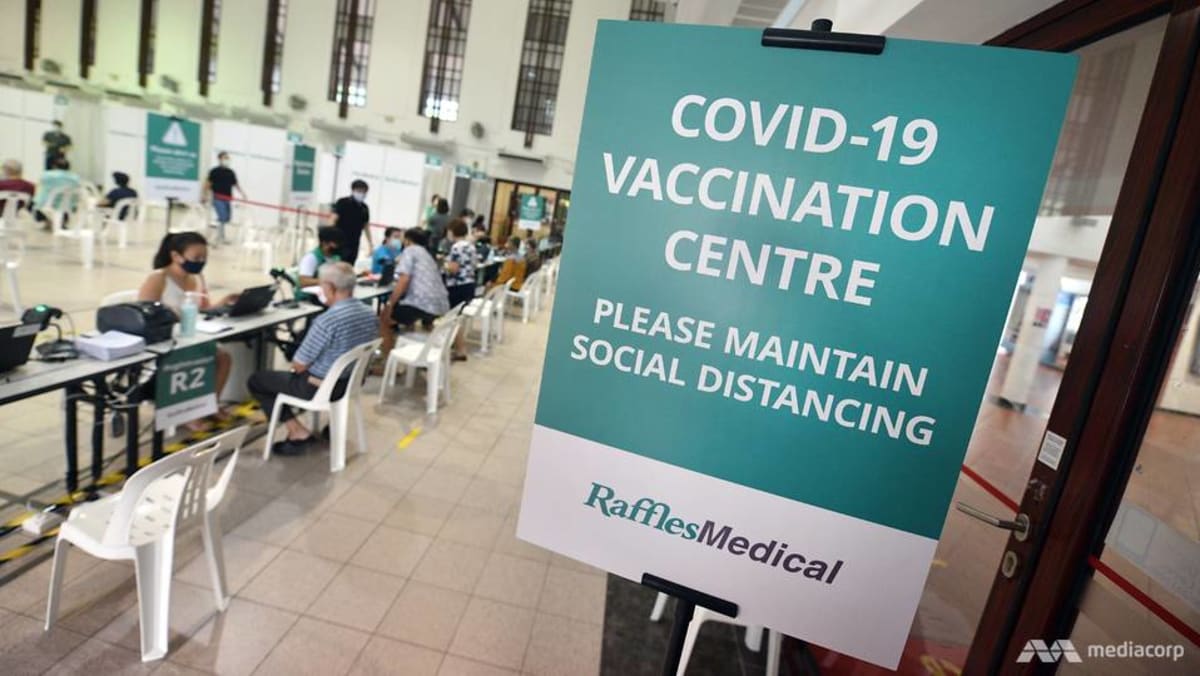
SINGAPORE: The Expert Committee on COVID-19 Vaccination on Monday (May 22) recommended that those aged 60 and above, and medically vulnerable people who have yet to receive the updated bivalent vaccine booster to do so around one year after their last booster dose.
The government-appointed committee noted that hospitalised patients were more likely to not be updated with their COVID-19 vaccinations, and had yet to receive a bivalent vaccine booster.
A “substantial number” of patients also had yet to achieve the minimum protection. This comprises three complete mRNA or Novavax doses or four Sinovac-CoronaVac doses – regardless of any past infections.
The expert committee added vaccinations could have potentially prevented hospital admissions.
As Singapore continues to live with COVID-19 as an endemic disease, there have been repeated calls for people to keep up to date with their vaccinations.
“Please continue to keep your vaccinations up to date, as it reduces the risk of severe illness,” Prime Minister Lee Hsien Loong said on Monday (May 22) when he revealed that he had tested positive for COVID-19.
What is considered up-to-date COVID-19 vaccination and when will you require booster doses? Here’s what you need to know.
WHAT IS THE UP-TO-DATE VACCINE STRATEGY?
Singapore transitioned to a new strategy for COVID-19 vaccinations towards the end of 2022, with a focus on keeping up to date with the latest vaccination recommendations rather than tracking the number of vaccine doses taken.
People will generally be considered up to date with their COVID-19 vaccination if they achieved the minimum protection.
There are, however, booster dose recommendations for certain groups of people, including people aged 60 and above.
DO I NEED A BOOSTER SHOT?
Besides achieving minimum protection, the Ministry of Health (MOH) recommends an additional booster shot in 2023, one year after their last booster dose for three groups of people.
These are people aged 60 and above, those who live in aged care facilities, as well as people aged 12 and above who are medically vulnerable and at risk of severe disease.
The expert committee said on Monday those aged 60 and above, and medically vulnerable people can start to receive one booster dose of the updated bivalent vaccine from five months after their last booster dose.
MOH had said previously that the Pfizer-BioNTech and the Moderna bivalent vaccines are recommended as the additional booster shot for these groups of people.
Those who are not medically eligible for the two mRNA vaccines may receive the Novavax vaccine or the Sinovac-CoronaVac jab as an alternative.
People aged 12 and above who do not fall into the recommended groups above may also receive one booster dose at the same interval if they choose to, said MOH.
WHY IS THE BOOSTER SHOT RECOMMENDED FOR CERTAIN GROUPS?
The expert committee said on Monday that vaccination is essential to achieve a good level of protection against severe disease.
Those aged 60 and above are particularly vulnerable as they are “significantly” more likely to require medical care and be admitted to hospital should they fall ill with COVID-19.
The risks of severe illness from COVID-19, including breathing difficulties and even death, can be as high as around seven in 100 persons among unvaccinated seniors.
Seniors and medically vulnerable people should have minimum protection at the very least and achieve optimal protection by being updated with the bivalent vaccines, the expert committee added.
The bivalent vaccine boosters provide better protection against the Omicron variants circulating both in Singapore and overseas, and the most at-risk groups will get the “greatest benefit” from getting the jab.
The protection the boosters provide will reduce the risk of severe disease, the worsening of underlying medical conditions and hospitalisation, said the expert committee.
